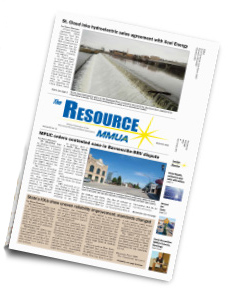
- SINCE 1931
- Cart 0
- Log In
Why Create an Account?
Access members-only information including complete utility directory, salary surveys, discussion forums, legislative updates and more.
Create an Account- Classifieds
- Forum
NERC Releases 'Sobering' Reliability Report for 2021
NERC Releases 'Sobering' Reliability Report for 2021
February 28, 2022
The North American Electric Reliability Corporation (NERC) released its 2021 Annual Report in February.
In introductory comments, NERC President and CEO Jim Robb said 2020 and 2021 brought significant clarity to two major risks facing the bulk power system: vulnerability to climate change-driven weather events and cyber-security issues.
What has become known as Winter Storm Uri in February 2021 showed the tragic consequences that result from long-duration outages under terrible weather conditions. The second major issue was the steady discovery of supply chain cyber-security vulnerabilities. There were multiple high-profile ransomware events and digital, inverter-based resource performance issues.
Robb said, “As the power grid continues to transform into more decentralized, decarbonized, and digitized structures, we must all be mindful that preserving reliability, improving security, and strengthening resilience need to continue to be top priorities for all of us.”
He noted that NERC’s Long-Term Reliability Assessment showed a “sobering reliability outlook for many areas of North America.”
The bulk power system model was developed during a time when risks were well-known and the grid was evolving at a measured pace; we are now in a time where significant risks are emerging, they are new and unfamiliar, and the grid is transforming at a significant pace, said Robb. Updating the existing model to get ahead of emerging risks and avoid catastrophes like the February outage event or June’s Colonial Pipeline attack is a crucial task.
A key focus for NERC in 2021 was weatherization—made even more important with the addition of new technology that is more susceptible to extreme weather.
NERC’s combined report on February’s outage found that “extreme events are having greater impacts . . . on the rapidly transforming grid.”
NERC now warns of the potential for the loss of large amounts of generating resources due to severe weather in winter and summer as well as the potential need for grid operators to employ operating mitigations or energy emergency alerts to meet energy and peak demand. Grid operators have consistently signaled the need to be cognizant of reliability issues during the transition to a cleaner energy future and the need to manage the pace of change.
Amid this rapid transformation, security threats continue to evolve. “In what can only be described as extraordinary, the past year has seen the manifestation of each of these risks, all while industry continues to navigate the challenges of the ongoing global pandemic,” Robb said.
Inverter-based resources continue to be a concern during times of system instability—a topic Robb said NERC has been working on since 2016. An important lesson is the need for inverter-based resources to “ride through” system disturbances and not amplify them. This need will only grow as more solar photovoltaic generation and battery storage resources are deployed on the system.
Change needs to be carefully managed, said Robb.
The cyber security landscape continues to evolve, noted the NERC report. There has been a large increase in the frequency and sophistication of malicious cyber activity.
This, coupled with the ever-increasing attack surfaces associated with the digitization of the resource base and the expansion of industrial control systems, said Robb, “suggests that we all have our work cut out for us in the coming years.”
Hometown Connections Helps MMUA Members
 Hometown Connections is an American Public Power Association subsidiary that provides products and services designed to help municipal utilities meet today's new and pressing industry challenges. MMUA is a Hometown Connections Affiliate.
Hometown Connections is an American Public Power Association subsidiary that provides products and services designed to help municipal utilities meet today's new and pressing industry challenges. MMUA is a Hometown Connections Affiliate.
For information on AMI, operations, cyber-security, business strategy, customer care, finance and workforce issues, click on the Hometown Connections logo!
Events
Sponsors

73% of our municipal
electric utilities have
successfully operated
for 100 years or more.


